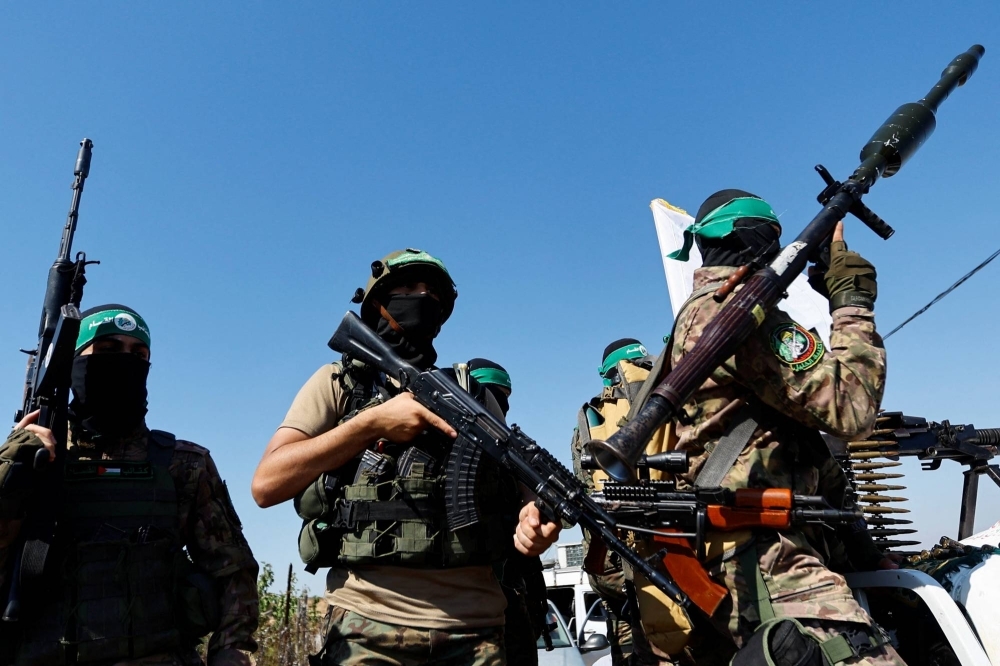BY BRAHMA CHELLANEY, The Japan Times

Israel, which withdrew from Gaza in 2005, has come full circle with its invasion of that territory in response to the atrocities perpetrated by the Hamas militants.
But, just as the United States invaded Afghanistan in 2001 to oust from power a terrorist militia whose rise it had facilitated via its Pakistani intelligence connections for Afghanistan’s stability sake, Israel is tasting the bitter fruits of a divide-and-rule policy that helped midwife the birth of the Hamas “Frankenstein monster” that it is now seeking to subdue.
Treating the Hamas slaughter of innocent civilians as a kind of Pearl Harbor moment, Israel has vowed to “wipe out” the Gaza-based militia group through a military offensive that is one of the most intense of the 21st century, according to the New York Times. The terrorism-glorifying ideology of Hamas, however, cannot be crushed by military means alone, raising the question whether Israeli forces could get bogged down in Gaza the way America’s Afghanistan invasion turned into a costly quagmire.
The international focus on the war in Gaza has helped obscure the fact that Israel in the 1980s aided the rise of the Islamist Hamas as a rival to the secular Palestinian Liberation Organization and its dominant faction, Yasser Arafat’s Fatah. Israel’s policy was clearly influenced by the U.S. training and arming of mujahideen (or Islamic holy warriors) in Pakistan from multiple countries to wage jihad against Soviet forces in Afghanistan.
The multibillion-dollar American program from 1980 to create anti-Soviet jihadis represented what still remains the largest covert operation in the Central Intelligence Agency’s history. In 1985, at a White House ceremony attended by several mujahideen, then-U.S. President Ronald Reagan gestured toward his guests and declared, “These gentlemen are the moral equivalent of America’s Founding Fathers.”
Out of the mujahideen evolved the Taliban and al-Qaida. As then-U.S. Secretary of State Hillary Clinton openly admitted in 2010, “We trained them, we equipped them, we funded them, including somebody named Osama bin Laden … And it didn’t work out so well for us.”
Hamas, for its part, is alleged to have emerged out of the Israeli-financed Islamist movement in Gaza, with Israel’s then-military governor in that territory, Brig. Gen. Yitzhak Segev, disclosing in 1981 that he had been given a budget for funding Palestinian Islamists to counter the rising power of Palestinian secularists. Hamas, a spin-off of the Palestinian branch of the Muslim Brotherhood, was formally established with Israel’s support soon after the first Intifada flared in 1987 as an uprising against the Israeli occupation of Palestinian lands.
Israel’s objective was twofold: to split the nationalist Palestinian movement led by Arafat and, more fundamentally, to thwart the implementation of the two-state solution for resolving the protracted Israeli-Palestinian conflict. By aiding the rise of an Islamist group whose charter rejected recognizing the Israeli state, Israel sought to undermine the idea of a two-state solution, including curbing Western support for an independent Palestinian homeland.
Israel’s spy agency Mossad played a role in this divide-and-rule game in the occupied territories. In a 1994 book, “The Other Side of Deception,” Mossad whistleblower Victor Ostrovsky contended that aiding Hamas meshed with “Mossad’s general plan” for an Arab world “run by fundamentalists” that would reject “any negotiations with the West,” thereby leaving Israel as “the only democratic, rational country in the region.” Avner Cohen, a former Israeli religious affairs official involved in Gaza for over two decades, told a newspaper interviewer in 2009 that, “Hamas, to my great regret, is Israel’s creation.”
To be sure, some others, including the U.S. intelligence establishment, have not endorsed the Israeli connection to the rise of Hamas, portraying it simply as an offshoot of the Muslim Brotherhood.
About seven years before U.S. special forces killed bin Laden in a helicopter assault on his hideout near Pakistan’s capital, an Israeli missile strike in 2004 assassinated Hamas founder Sheikh Ahmed Yassin, a quadriplegic and partially blind cleric. By drawing specious distinctions between “good” and “bad” terrorists, Israel and the U.S., however, continued to maintain ties with jihadis.
While Barack Obama was in the White House, the U.S. and its allies toppled Libyan leader Moammar Gadhafi, creating a still-lawless jihadi citadel at Europe’s southern doorstep. They then moved to overthrow another secular dictator, Syria’s Bashar Assad, fueling a civil war that helped enabled the rise of the Islamic State, a brutal and medieval militia, some of whose foot soldiers were CIA-trained. And apparently shocked by the brutality of some of those U.S.-backed militants, and amid questions over the effectiveness of the policy, then-American President Donald Trump in 2017 is reported to have decided to shut down the covert Syrian regime-change program.
Israel, by contrast, persisted with its covert nexus with Hamas. With the consent of Israel, Qatar, a longtime sponsor of jihadi groups, funneled $1.8 billion to Hamas just between 2012 and 2021, according to the Haaretz newspaper.
Israeli Prime Minister Benjamin Netanyahu, who has been in power for much of the past decade and a half, told a meeting of his Likud Party’s Knesset members in 2019 that, “Anyone who wants to thwart the establishment of a Palestinian state has to support bolstering Hamas and transferring money to Hamas,” adding, “This is part of our strategy — to isolate the Palestinians in Gaza from the Palestinians in the West Bank.”
Israel, like the U.S., may have been guided by the proverb, “the enemy of my enemy is my friend.” But, as history attests, “the enemy of my enemy,” far from being a friend, has often openly turned into a foe.
America’s longest war ended with the Taliban’s return to power. The reconstitution of a medieval, ultraconservative, jihad-extolling emirate in Afghanistan has no direct bearing on a distant America. But Israel’s war against the monster it helped spawn will greatly shape Israeli security.
Brahma Chellaney is a geostrategist and the author of nine books, including “Water: Asia’s New Battleground.”

You must be logged in to post a comment.